Milk has been a staple in many households for centuries, but with the rise of lactose intolerance and ethical concerns surrounding the dairy industry, more and more people are turning to vegetarian alternatives to milk.
Whether you’re lactose intolerant, vegan, or simply looking to reduce your dairy intake, there are many vegetarian alternatives to milk that can provide the same essential nutrients found in cow’s milk.
In this article, we’ll explore the top 10 vegetarian alternatives to milk and what factors to consider when choosing one.
Why Use Vegetarian Alternatives to Milk?
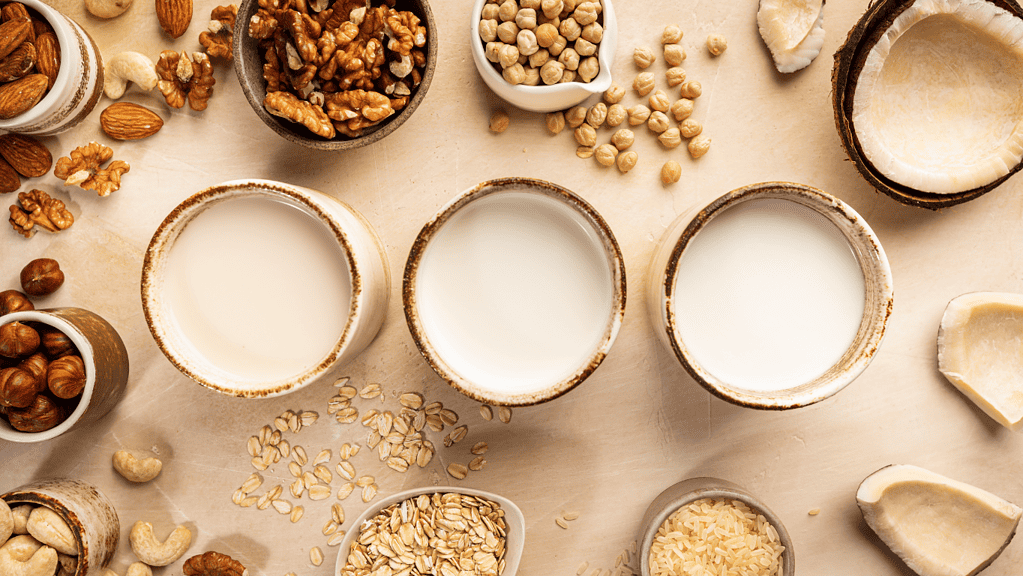
There are several reasons why someone might choose to use a vegetarian alternative to milk. One of the most common reasons is lactose intolerance, which affects up to 75% of the world’s population.
Lactose intolerance is the inability to digest lactose, a sugar found in milk and other dairy products. Symptoms of lactose intolerance include bloating, gas, and diarrhea, and can range from mild to severe.
Another reason why someone might choose a vegetarian alternative to milk is the ethical concerns surrounding the dairy industry.
Many people choose to go vegan or reduce their dairy intake to avoid contributing to animal cruelty and environmental issues related to the dairy industry.
Let’s take a look at some popular milk alternatives and the pros and cons of each!
1. Soy Milk
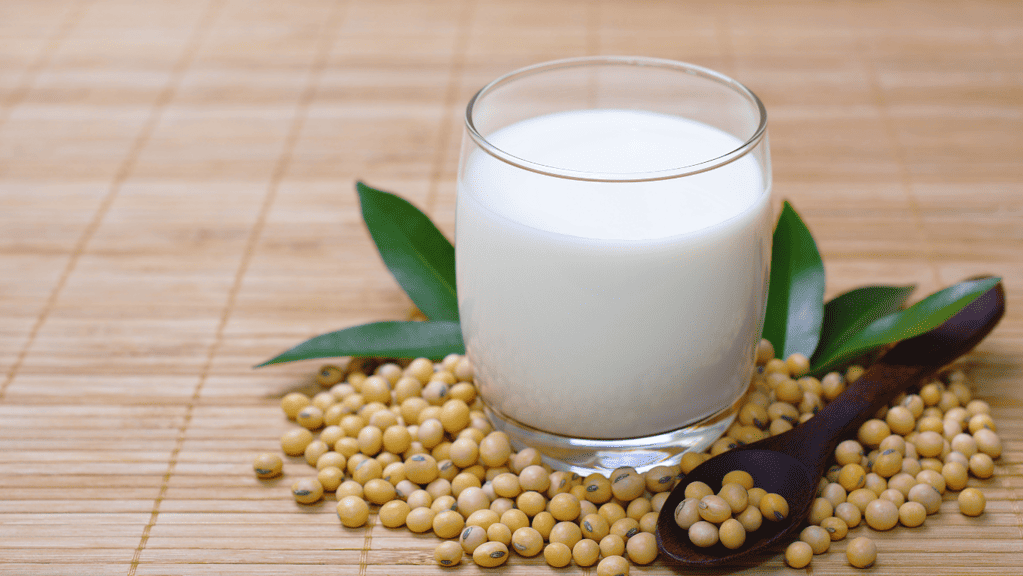
Soy milk is one of the most popular vegetarian alternatives to milk. It is made from soybeans and is often fortified with calcium and vitamin D to provide the same nutrients found in cow’s milk.
Soy milk contains about 7-10 grams of protein per cup, which is comparable to cow’s milk.
It is also low in saturated fat, with only 1-2 grams per cup. According to the USDA, a cup of unsweetened soy milk contains about 80-100 calories.
Pros of Soy Milk:
- Contains all nine essential amino acids
- High in protein
- Often fortified with calcium and vitamin D
- Has a creamy texture and mild taste
Cons of Soy Milk:
- May cause digestive issues in some individuals
- Some people find the taste to be too strong or “beany”
- May not be suitable for those with soy allergies or intolerances
2. Almond Milk
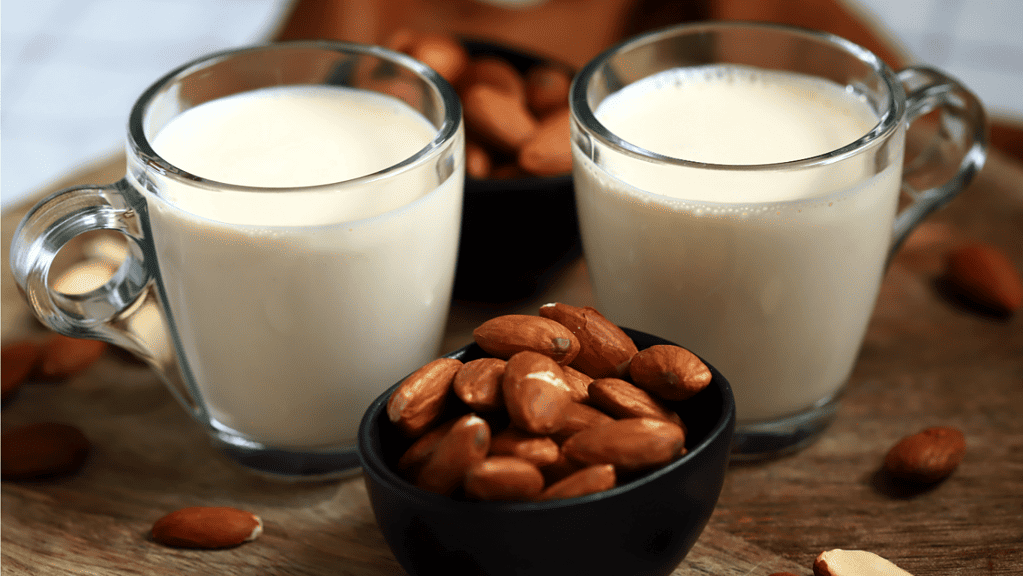
Almond milk is another popular vegetarian alternative to milk. It is made from ground almonds and water and is often fortified with calcium and vitamin D.
Almond milk contains about 1 gram of protein per cup, which is lower than cow’s milk and soy milk.
It is also lower in calories than cow’s milk, with only about 30-50 calories per cup. According to the USDA, a cup of unsweetened almond milk contains about 2.5-3 grams of fat.
Pros of Almond Milk:
- Low in calories and fat
- May help lower cholesterol levels
- Has a nutty and slightly sweet taste
- Often fortified with calcium and vitamin D
Cons of Almond Milk
- Low in protein
- May contain added sugars
- Not suitable for those with nut allergies or intolerances
- Can have a thin consistency, which may not be suitable for all recipes
3. Oat Milk
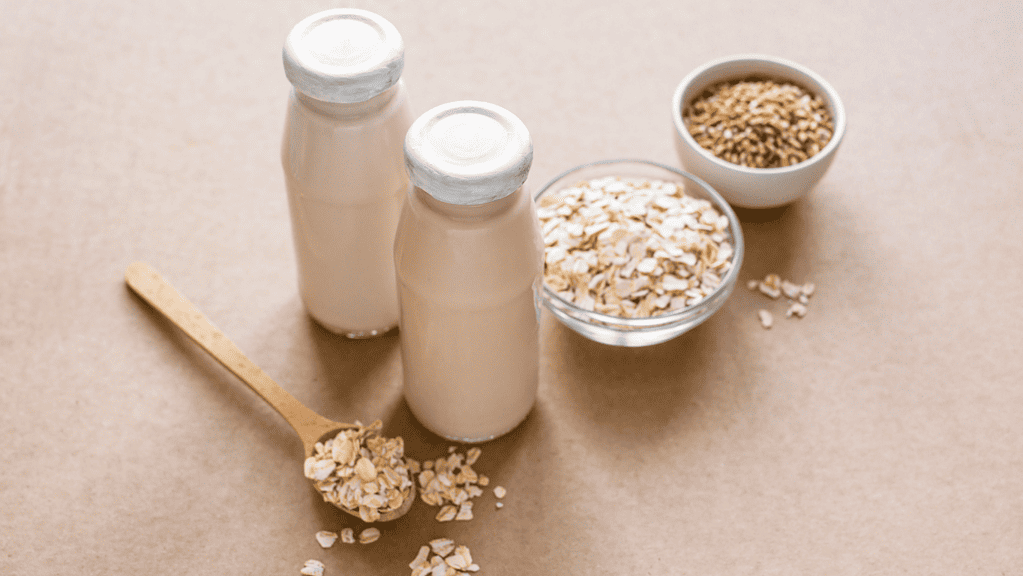
Oat milk is a newer vegetarian alternative to milk that has gained popularity in recent years. It is made from oats and water and is often fortified with calcium and vitamin D.
Oat milk contains about 2-3 grams of protein per cup, which is lower than cow’s milk and soy milk.
It is also lower in fat than cow’s milk, with only about 2-3 grams of fat per cup. According to the USDA, a cup of unsweetened oat milk contains about 120-130 calories.
Pros of Oat Milk
- High in fiber
- Low in fat
- Creamy texture and a mild taste
- Often fortified with calcium and vitamin D
Cons of Oat Milk
- Low in protein
- May contain added sugars
- Not suitable for those with gluten sensitivities or intolerances
- May not be suitable for those with celiac disease
4. Coconut Milk

Coconut milk is a popular vegetarian alternative to milk in Southeast Asian and Indian cuisine. It is made from the flesh of mature coconuts and is often used in curries, smoothies, and desserts.
Coconut milk contains about 1 gram of protein per cup, which is lower than cow’s milk and soy milk. It is also higher in fat than cow’s milk, with about 12-13 grams of fat per cup.
According to the USDA, a cup of canned coconut milk contains about 450-550 calories.
Pros of Coconut Milk
- Rich and creamy texture
- Often fortified with calcium and vitamin D
- Contains medium-chain triglycerides, which may have health benefits
- Has a slightly sweet taste
Cons of Coconut Milk
- High in saturated fat
- Low in protein
- May contain added sugars
- May not be suitable for those with coconut allergies or intolerances
5. Cashew Milk

Cashew milk is a creamy and nutty vegetarian alternative to milk. It is made from cashew nuts and water and is often fortified with calcium and vitamin D.
Cashew milk contains about 1 gram of protein per cup, which is lower than cow’s milk and soy milk. It is also lower in calories than cow’s milk, with only about 25-50 calories per cup.
According to the USDA, a cup of unsweetened cashew milk contains about 2-3 grams of fat.
Pros of Cashew Milk:
- Creamy texture and a mild taste
- May help lower cholesterol levels
- Contains healthy fats
- Often fortified with calcium and vitamin D
Cons of Cashew Milk:
- Low in protein
- May contain added sugars
- Not suitable for those with nut allergies or intolerances
- Can be more expensive than other milk alternatives
6. Hemp Milk

Hemp milk is a vegetarian alternative to milk made from hemp seeds and water. It is often fortified with calcium and vitamin D.
Hemp milk contains about 2-3 grams of protein per cup, which is lower than cow’s milk and soy milk.
It is also lower in fat than cow’s milk, with only about 2-3 grams of fat per cup. According to the USDA, a cup of unsweetened hemp milk contains about 70-80 calories.
Pros of Hemp Milk:
- High in omega-3 fatty acids
- Contains all nine essential amino acids
- Often fortified with calcium and vitamin D
- Has a nutty and slightly sweet taste
Cons of Hemp Milk:
- Low in protein
- May contain added sugars
- May not be suitable for those with hemp allergies or intolerances
- Can have a thin consistency, which may not be suitable for all recipes
7. Rice Milk
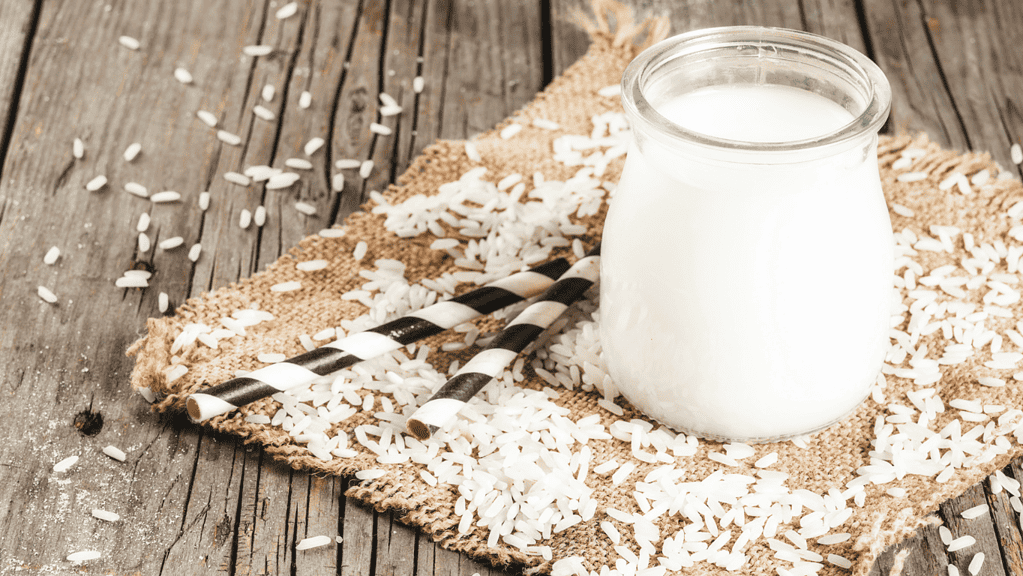
Rice milk is a vegetarian alternative to milk made from milled rice and water. It is often fortified with calcium and vitamin D.
Rice milk contains about 1 gram of protein per cup, which is lower than cow’s milk and soy milk. It is also lower in fat than cow’s milk, with only about 2-3 grams of fat per cup.
According to the USDA, a cup of unsweetened rice milk contains about 110-120 calories.
Pros of Rice Milk:
- Low in fat
- Easy to digest
- Neutral taste
- Often fortified with calcium and vitamin D
Cons of Rice Milk:
- Low in protein
- May contain added sugars
- May have a watery consistency, which may not be suitable for all recipes
- May not be suitable for those with rice allergies or intolerances







